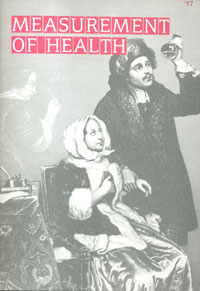Expenditure on health care is continuing to rise in all Western countries, both in total and as a percentage of gross national product (Table 1). This…
Expenditure on health care is continuing to rise in all Western countries, both in total and as a percentage of gross national product (Table 1). This has underlined the political importance of demonstrating that this expenditure is giving value for money, both in…
Expenditure on health care is continuing to rise in all Western countries, both in total and as a percentage of gross national product (Table 1). This has underlined the political importance of demonstrating that this expenditure is giving value for money, both in specific instances and in its totality.
In other types of human activity, such as the production of goods or the provision of private services, the success of a venture can be measured by its profitability. The more the public want the goods and services, the more they will pay for them, and the greater will be the rewards for the producers and the providers. But in all aspects of welfare – health, education and the social services – profit has very often been eliminated as a measure of effectiveness and efficiency. Hence there is a need, in the welfare services, to fall back on other measures of success. And, although it is relatively easy to measure the costs of the services provided, it is much more difficult to measure their outcome in quantitative terms.
This report deals with recent developments in relation to health care which have been concerned to provide more sophisticated measurements of the outcome of treatment. This means, in effect, developing methods of ‘measuring ‘health’ itself, in terms of the length and quality of life for the individuals in the community.
